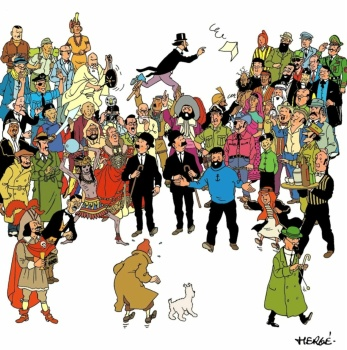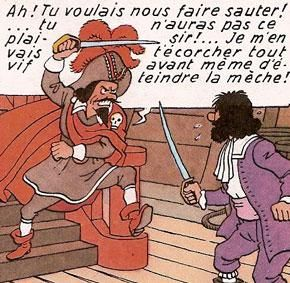Aha, fun days. Its nice getting some time to yourselves. And what's more fun than reading ? A bit of writing.
I went down a long rabbit hole recently. In a good way. I have always enjoyed reading, and comics and cartoons in that order. Earlier this year I read that The Tintin comics entered public domain this year. Not around the world, only the US copyright.
You see ,everything written or published by any author has a copyright, during which that work cannot be copied. The law works different in each country. But here is what google's ai summarized:
In the United States, the copyright on the original Tintin comics expires 95 years after publication. This means that the first versions of Tintin, which debuted in a Belgian newspaper in 1929, entered the public domain on January 1, 2025. Therefore, as of today (May 29, 2025), the US copyright on Tintin has already expired.
Now does that mean one is now free to copy and use the character as one sees fit ? Beats me, I am not a lawyer.
But reading upon this news brought back memories. And a bit of time travel. You see, the Tintin comics were the first real cartoon/comic books I read. Uptil that point I only ever read the cartoons published in Indian newspapers. Most of which were political, although the Hindu published syndicated cartoons/comics from the West : Tarzan, Spiderman etc.
The school I used to attend to, one day finally decided to get brand new books; and these reignited my love of reading. The complete works of Agatha Christie and Arthur Conan Doyle, many other thrillers and non-fictions, and the World Encyclopedia (remember those). It was the time before accessible , cheap internet, so folks had to find their stuff offline the hard way.
But among the acquisitions, was the complete color publication of The Tintin comics. This was soon to prove a famous among the school students. The simple, dark lines and many colors, and the humour from 60 years prior just resonated. Tintin , the young 20s something lad always found a way to travel around the world with his little dog, without having to answer questions at passport control, or booking a separate seat for his dog ! The Tintin world was a simplified but still rich snapshot in time.
My favourite book (maybe for most) was of course the Unicorn-Rackham works. Author George Remi, more famously known as Herge, found a way to get some time travel within the storyline. In the first book, the timeline shifts from the 1920s to 1670s, when captain Haddock recounts the travels of his ancestor, who was supposedly a capable captain in King Charles II's navy, the English navy. It features pirates, and wooden ships, and classic cutlass fights. I suppose pirates and sail ships have always stirred the imagination of the young reader. And of course: treasure. Cutting back to current times, the trio (musn't forget Snowy) decide to hunt for pirate Red Rackham's sunken treasure.
I came home and started reading and playing the story to my kid. And the little one got hooked. There was a plethora of questions about pirates and life at sea at the time ; questions I was not really prepared for.
"What's the larboard ?"
"What's the booty?"
"Gunpowder?"
Man of man..the questions kept on coming. I had no choice but to bring in more books & movies on the topic.
We end up watching the live animated movie by Spielberg, after having watched the animations from the 90s.
..fast forward 2 days, we were now watching Treasure Island, the 1990 version starring a young Christian Bale as Hawkins.
The movie was fun but attracted more questions. Hawkins was clearly too young to be serving in a place like that, but times were different. And how does the treasure finding work ? Is it always "finders, keepers" ? Not in the real world, but law is different in adventure fiction.
Coming back to Tintin, it was fascinating reading how teachers were using the comics to teach world history. There is something about the clear drawings, and the colorful and caricaturized characters, the colorful, but still child-safe language, and references to all the cultures and countries depicted: someone actually took time and effort to work on them, and it is clearly visible. There are memes, and ai generated content ..etc..Tintin will live on in imagination and on the internet forever.
And that was quite a rabbit hole.












